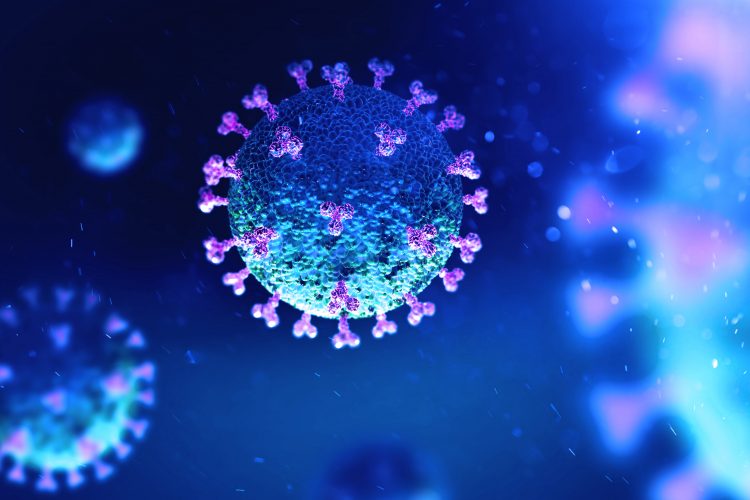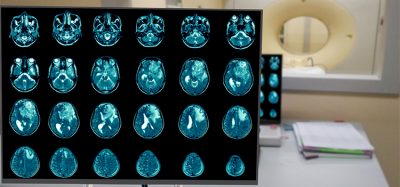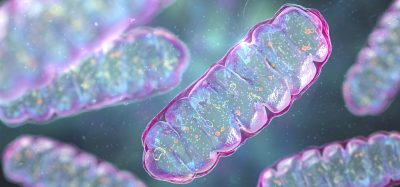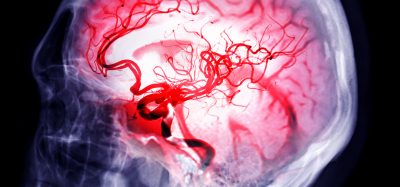Chronic use of heart disease medications may increase the risk of severe COVID-19
Posted: 24 March 2020 | Hannah Balfour (Drug Target Review) | 2 comments
A researcher has revealed that angiotensin-converting enzyme inhibitors (ACEI) and angiotensin receptor blockers (ARBs) may increase the risk of severe lung complications in COVID-19.


A researcher has proposed that chronic use of angiotensin-converting enzyme inhibitors (ACEIs) and angiotensin receptor blockers (ARBs) may be responsible for the severe lung complications seen in some people diagnosed with COVID-19.
The Severe Acute Respiratory Syndrome (SARS) beta coronaviruses, SARS-CoV, including the new SARS-CoV-2, which causes COVID-19, bind to angiotensin converting enzyme 2 (ACE2) receptors in the lower respiratory tracts of to gain entry into the lung tissue. Once sequestered in the cells, viral pneumonia and potentially fatal respiratory failure may result in susceptible persons after 10-14 days.
“Angiotensin-converting enzyme inhibitors (ACEIs) and angiotensin receptor blockers (ARBs) are highly recommended medications for patients with cardiovascular diseases including heart attacks, high blood pressure, diabetes and chronic kidney disease to name a few,” said Dr James Diaz, Professor and Head of Environmental Health Sciences at Louisiana State University Health Sciences Center, New Orleans School of Public Health, US. “Many of those who develop these diseases are older adults. They are prescribed these medications and take them every day.”
According to Dr Diaz, experimental models treated with ACEI intravenous infusions have shown increased numbers of ACE2 receptors in the cardiopulmonary circulation.
“Since patients treated with ACEIs and ARBS will have increased numbers of ACE2 receptors in their lungs for coronavirus Spike (S) proteins to bind to, they may be at increased risk of severe disease outcomes due to SARS-CoV-2infections,” explained Dr Diaz.
He also noted that his hypothesis was supported by the analysis of data from 1,099 patients with laboratory-confirmed COVID-19 infections treated in China. This study reported more severe disease outcomes in patients with hypertension, coronary artery disease, diabetes and chronic renal disease; all of the patients with these diagnoses noted met the recommended indications for treatment with ACEIs or ARBs.
Dr Diaz stated that further case-control studies in patients with COVID-19 infections would be needed to confirm that chronic therapy with ACEIs or ARBs may raise the risk of severe respiratory outcomes.
For the meantime he cautioned: “Patients treated with ACEIs and ARBs for cardiovascular diseases should not stop taking their medicine, but should avoid crowds, mass events, ocean cruises, prolonged air travel and all persons with respiratory illnesses during the current COVID-19 outbreak in order to reduce their risks of infection.”
The study was published in the Journal of Travel Medicine.
Related topics
Disease Research, Enzymes, Research & Development, Targets, Therapeutics
Related conditions
cardiovascular disease (CVD), Coronavirus, Covid-19
Related organisations
Louisiana State University Health Sciences Center
Related people
Dr James Diaz









Excerpts from Italian report – my comment: correlation is not causation, but this is a very frightening correlation:
Characteristics of COVID-19 patients dying in Italy Report based on available data on March 20th, 2020
1. Sample. The present report describes characteristics of 3200 COVID-19 patients dying in Italy . . . Data are update to March 20th, 2020.
. . .
Before hospitalization, 36% of COVID-19 positive deceased patients followed ACE-inhibitor therapy and 16% angiotensin receptor blockers-ARBs therapy. This information can be underestimated because data on drug treatment before admission were not always described in the chart.
. . .
This report was produced by COVID-19 Surveillance Group Members of the COVID-19 Surveillance Group Luigi Palmieri, Xanthi Andrianou, Antonino Bella, Stefania Bellino, Stefano Boros, Marco Canevelli, Maria Rita Castrucci, Alessandra Ciervo, Fortunato D’Ancona, Martina Del Manso, Chiara Donfrancesco, Massimo Fabiani, Antonietta Filia, Cinzia Lo Noce, Alberto Mateo Urdiales, Graziano Onder, Patrizio Pezzotti, Ornella Punzo, Valeria Raparelli, Giovanni Rezza, Flavia Riccardo, Maria Cristina Rota, Andrea Siddu, Paola Stefanelli, Brigid Unim, Nicola Vanacore, Silvio Brusaferro.
The body’s endogenous renin-angiotensin system (RAS) must be considered when looking at ACE2 activity
Like “the domino effect”, biological pathways are a series of interactions (steps) among molecules in and between cells to accomplish life-sustaining tasks. With over 30 trillion cells, a vast number of pathways occur simultaneously all over the body, yet they are intricately interconnected.
From DNA (genes), to a single cell, to similar cells with a specialized function (tissues), to several tissues working together (organs), to several organs working together (organ systems), and finally several organ systems working together, health and disease depend on the proper functioning of these biological pathways and networks.
The challenge is mapping it all out, so that effective treatment can address the root issue.
ACE2 is a key player of the renin-angiotensin system (RAS), a complex biological network that regulates blood pressure (circulatory homeostasis), inflammation, and fluid balance (sodium homeostasis).
Abnormal activation of the RAS can contribute to the development of hypertension, cardiac hypertrophy, heart failure, and kidney diseases for example.
ACE2 converts Ang2 (Inflammatory pathway) into Ang(1-7) (anti-inflammatory pathway). This is not occurring all the time because some inflammation is a good thing (part of the innate immune system).
In health, when inflammation is necessary to fight infection, angiotensin type 1 receptor (AT1R) binds to ACE2 which induces endocytosis of the complex into the cell and prevents conversion into Ang(1-7) at that given moment. Multiple steps downstream further regulate inflammation and trigger adaptive immunity.
Viruses can piggy-back entry only when ATIR induces endocytosis.
In an article soon to be published, Annette Offringa, Vanya Loroch, et al. suggest that Losartan, an angiotensin II receptor blocker (ARB) is the best way to prevent COVID-19 morbidity and mortality because it can block AT1R and yet conserve endogenous ACE2 functions outside the cell.
Losartan was first approved by the FDA in 1995 with generic release in 2010.
Randomized controlled trials of Losartan for patients with COVID-19 requiring hospitalization and not requiring hospitalization are currently in progress.
Note: Patients should keep using the medications they were prescribed by their doctor.
References:
Hypertension. 2014; 64: 1368-1375.
Comprehensive Physiology. 2015; 4(3): 1201-1228.
International Journal of Nephrology and Renovascular Disease. 2010; 3: 93-98.
Annette Offringa, Vanya Loroch, et al.